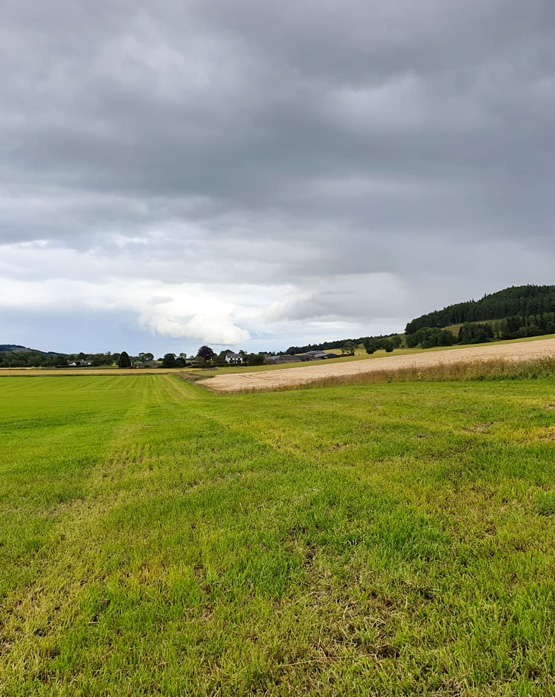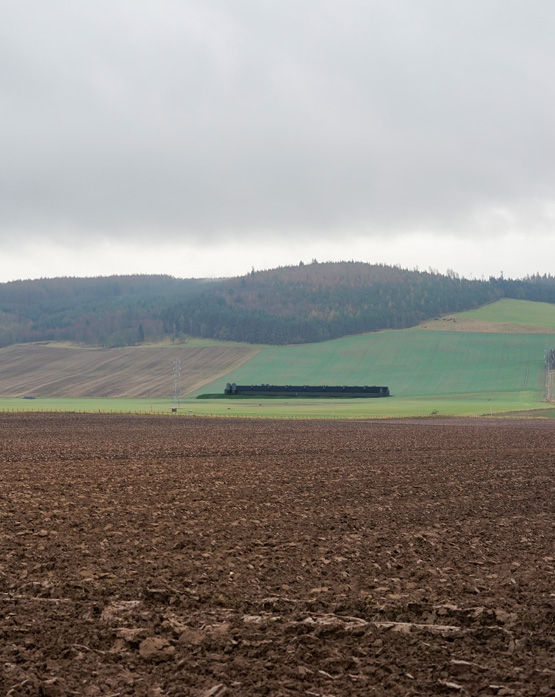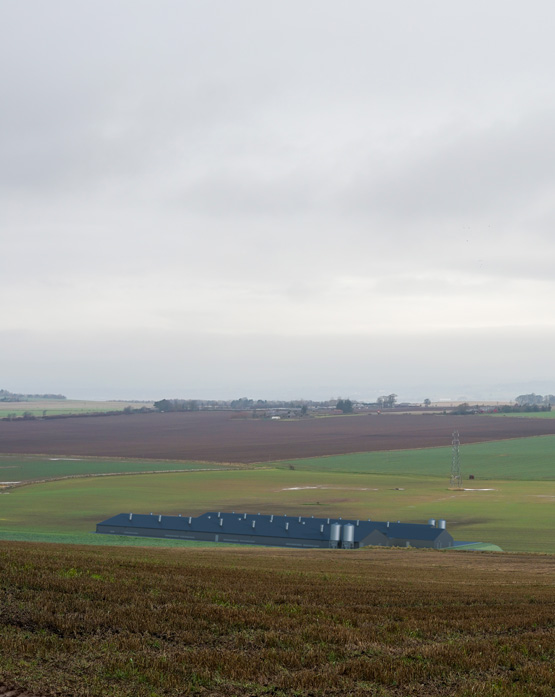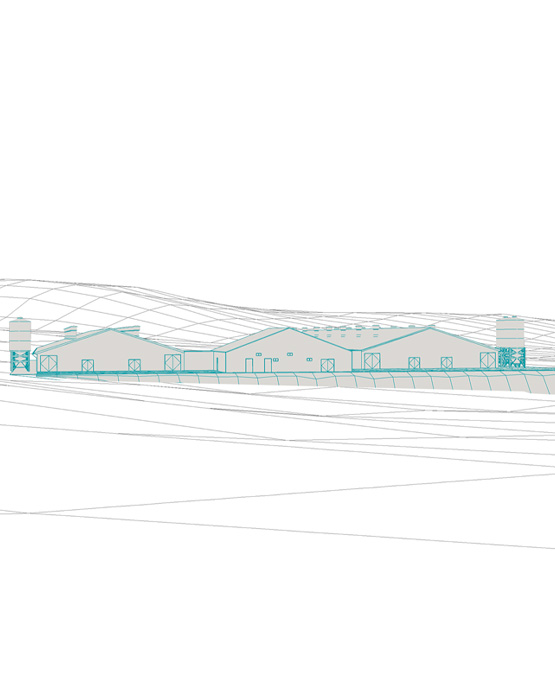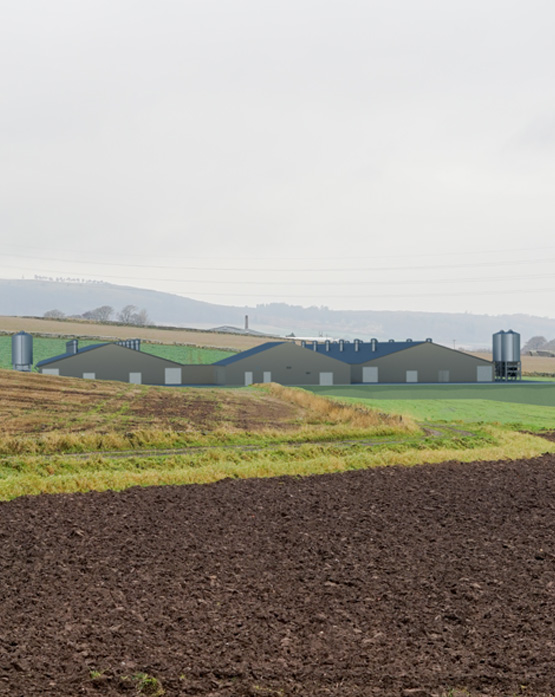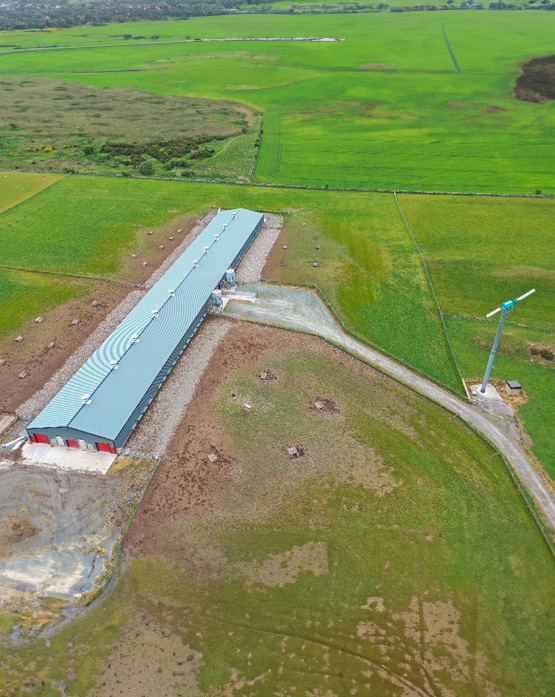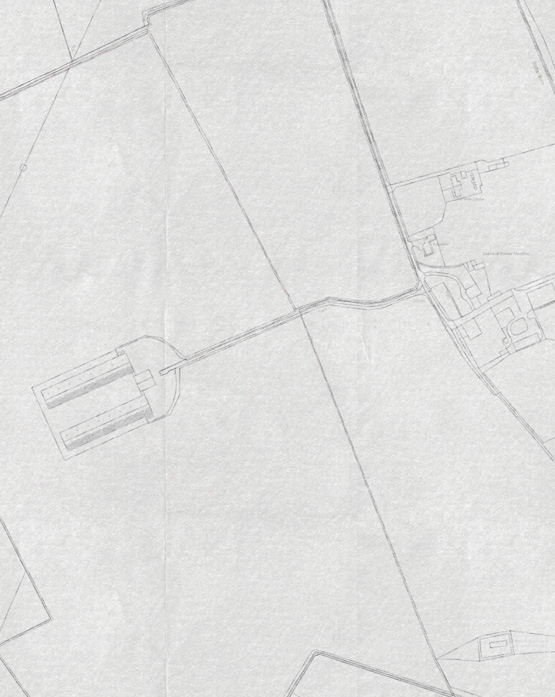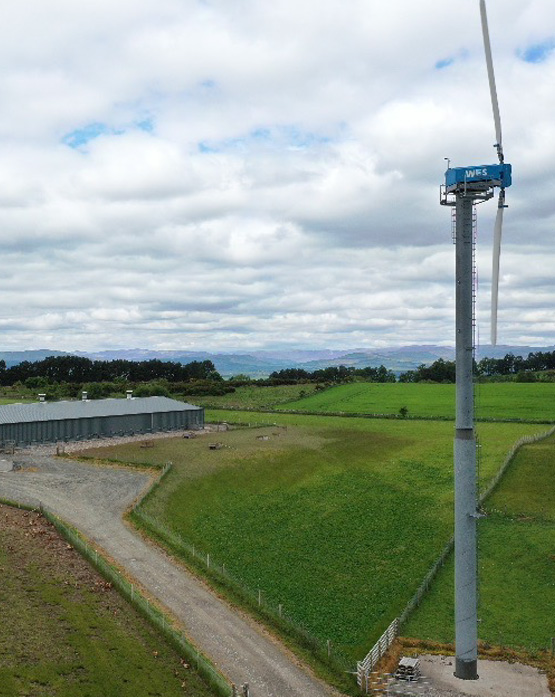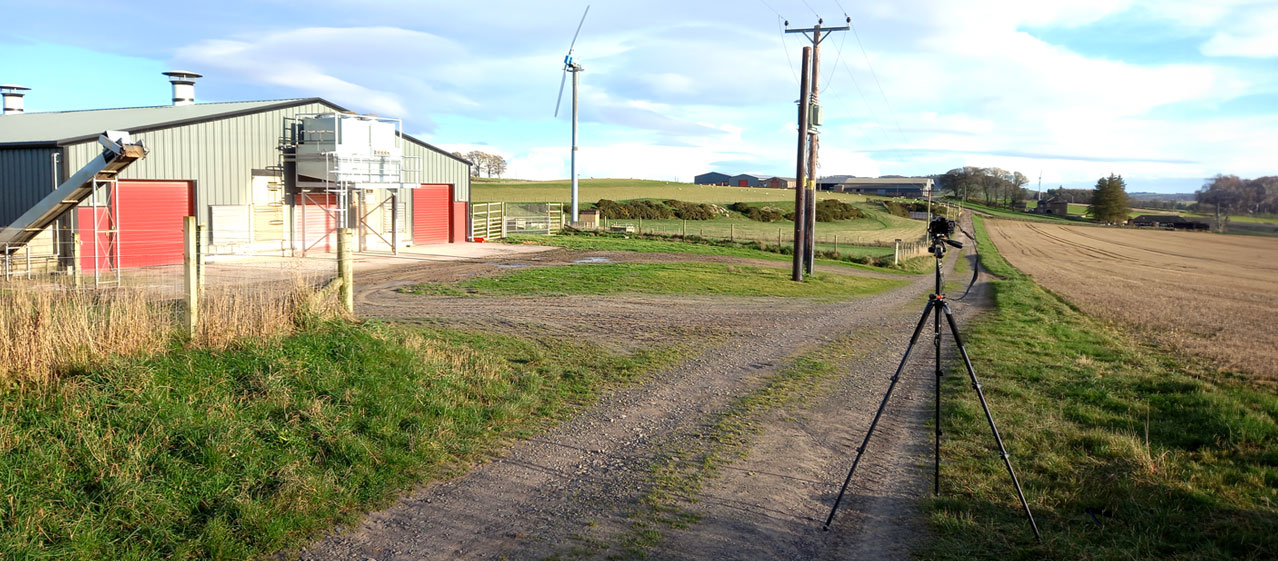
For any Planning Application, proper preparation matters. This saying is doubly true when the local Planning Committee determines an application; a single meeting can distil weeks, months or even years of work to determine the outcome of a project.
This was particularly true for Craignathro Eggs whose ambitious plan to expand their existing 32,000 bird egg production facility with a further 64,000 hen development came down to a single meeting of Angus Council’s Development Management Committee.
In a planning context, any development for over 60,000 hens requires an Environmental Impact Assessment (EIA) under Schedule 1 of the regulations. This meant a formal EIA was required as part of the planning process, and an associated Pollution Prevention Control (PPC) permit necessary to govern the site’s operation. This type of development embodies how we operate as a business, with our core values of Collaboration, Communication and Clarity being key components of effectively delivering such projects.
The findings of a High Court judgement in the case of ‘Squires vs Shropshire Council’ presented our main challenge, determining the need to assess the spreading and storage of manure as part of the EIA process. This assessment was in addition to addressing all other environmental constraints for the site, such as visual impact, odour, noise, flood risk, and traffic management. These challenges needed to be addressed before our appearance at the Angus Development Management planning committee hearing on 13th of February 2024 where locally elected members would scrutinise our approach, findings and assessments.
Learn more about the project and our collaboration with all parties involved by exploring below.

PROJECT HIGHLIGHTS
- A UK first - This project challenged the Squires vs Shropshire Council judgement.
- Expansion - Planning submission and approval for two hen sheds with a combined capacity of 64,000 hens as an addition to the Craignathro Eggs operational 32,000 hen unit at Craignathro Farm.
- Environmental Consideration - The shed design addressed flood risk, noise, air quality, and manure management concerns.
- Planning Committee - Clearly addressed the concerns of the committee and members of the public.
- Sustainability - Generating power from renewable energy and using manure onsite to create a circular farming system.
OUR EXPERTISE
- EIA - Assessed all aspects of the project which were determined to have a potentially significant effect on the environment.
- Flood Risk Management - Innovative solutions for compensatory flood storage, ensuring the integrity and safety of the site.
- Landscape and Visual Impact Assessment - Assessed the potential impacts on the local area from three viewpoints.
- Planning Committee - Clearly addressed the concerns of the committee and members of the public.
- Scoping Opinion & Planning Application - Successfully navigated the EIA application through all stages.

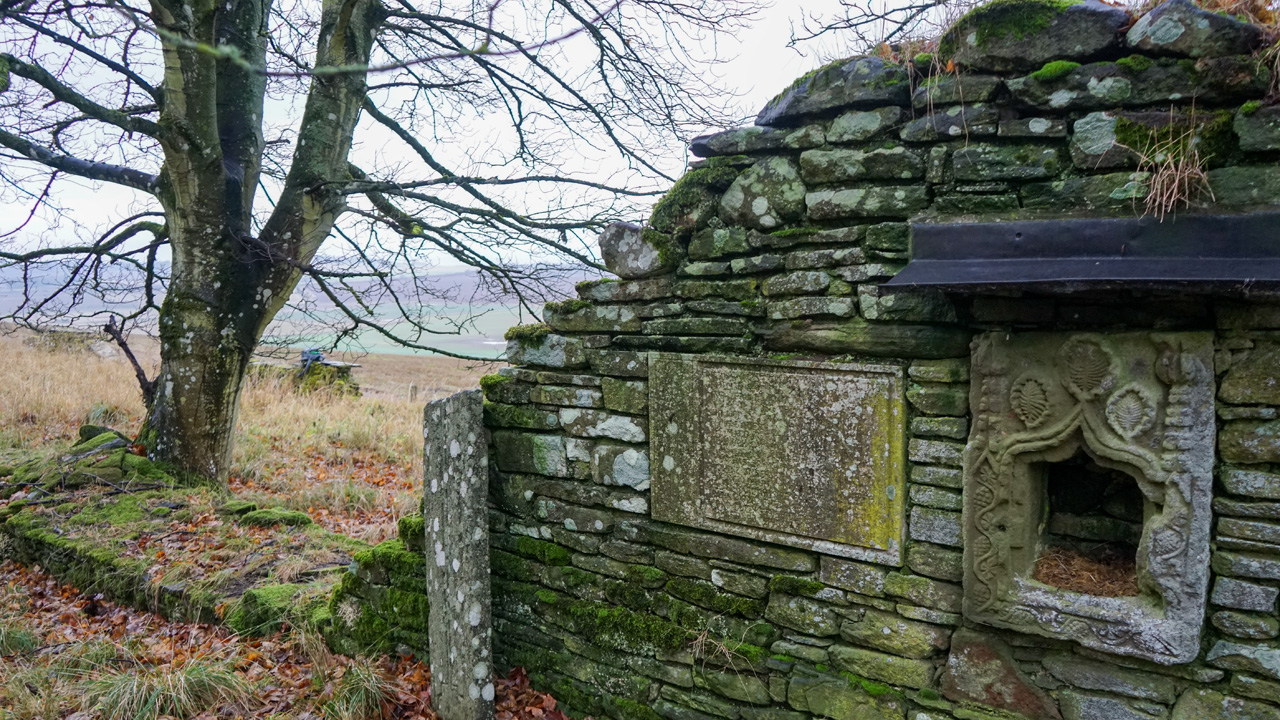
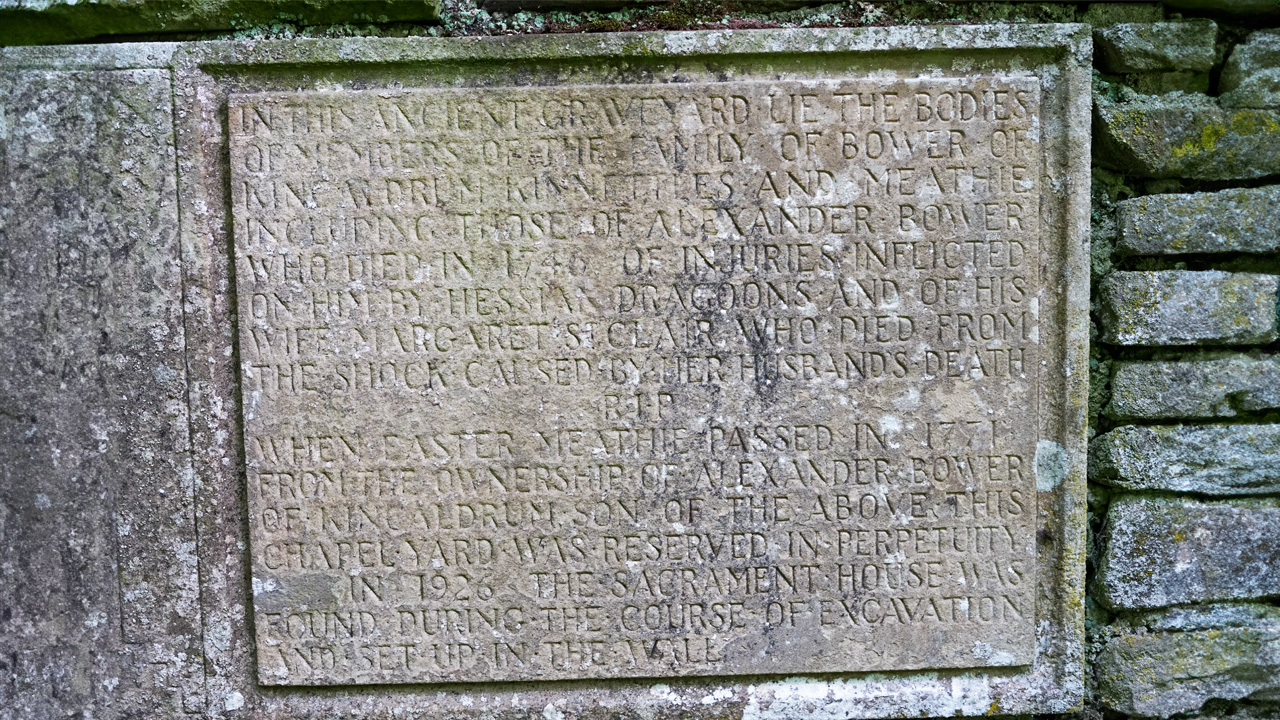
APPROACH & SOLUTIONS
Throughout the planning process, our multi-disciplinary approach was required to present the most effective solution to environmental challenges—the requirements for siting and operating a hen shed fall beyond the remit of planning legislation. Up to five separate bodies regulate the industry and hen shed design requirements.
Understanding the competing demands of operational sites has always been a hallmark of our design-to-delivery approach, which ensures that the planning permission and site layout are acutely aware of the real-world requirements of a project. This approach inevitably leads to competing ambitions and a balanced compromise of risk and requirement.
Two areas of development required specialist input. Firstly, the issue of Squires vs Shropshire Council. In summary, this judgement stated that any EIA for a hen shed needs to consider the environmental effects of spreading and storing manure as a by-product of the development. This issue had no guidance or methodology on how to complete these assessments at a local or national level. Working alongside James Findlay KC, our team provided a robust, logical and sound assessment of fact and understanding to allow the theoretical spreading and storage of manure with no significant adverse effects on the environment for air quality, dust, odour and water quality. This genuinely ground-breaking work overturned the Shropshire judgement, which has seen new developments wastefully commit to sending manure to anaerobic digesters. This solution is apt and sustainable, it does not contribute to a circular economy or zero-waste farming.
The use of hen manure onsite allows a reduction in artificial fertiliser use, with the associated carbon-producing production and factory-to-farm miles eliminated, as well as improving the overall soil health. For us, this was a key benefit to the wider Craignathro operation and a vital component of the sustainable element of this project. We couldn’t allow the Squires judgement to negatively impact the operation of the sheds and resolved the issue through careful collaboration with Craignathro Eggs, Angus Council, SEPA and James Findlay KC.
Our second major challenge for the site was the footprint of the development being located in the functional floodplain. The chosen location was a calculated but necessary design choice to balance the visual, operational, topographic and construction requirements and ultimately was the only viable location for the development. Working alongside Booth King Ltd., a flood risk assessment concluded that compensatory storage was required to facilitate the land raising required to form the shed platform. This involved the requirement to removing soil adjacent to the floodplain to create an area of additional space for floodwater. Working closely with both SEPA and the Angus Council Flood Authority, the scheme was designed and included within the consented plans to ensure no objection from either party.
As a Major Development, the planning application was required to be determined at the Angus Council Development Management Committee. Through our tireless efforts to address the Squires vs Shropshire judgement and expertise in Air Quality, Planning, Visual Impact, Ecology and Noise, the Case Officer recommended the application for approval by the Case Officer with no objections from Statutory Consultees.

OUTCOME
The planning committee, held on the 13th of February, was a testament to our approach that proper preparation matters. Several interested third parties made representations, and Councillors had a number of challenging questions relating to the operational and environmental elements of the project. Our Director, Dave Anderson, made representation for the technical aspects of the project, whilst Matthew Steel, Director of Craignathro Eggs, spoke eloquently and knowledgeably on both the Easter Meathie projects and the wider egg industry.
Crucially, the Development Management Committee voted 7 – 3 in favour of the Case Officer’s recommendation and approved the application by a majority vote. After nearly three years of challenge, this really was a result to savour and testament to the resilience, ingenuity and spirit of the Cogeo team.
The project's success is a testament to the strong collaboration between Cogeo, Craignathro Eggs Ltd., and various third parties, clearly illustrating our core values of collaboration, communication, and clarity.
The Easter Meathie project case study exemplifies Cogeo's commitment to navigating complex, unique and challenging projects. We are thrilled to assist Matthew and the Craignathro Eggs team, who collectively contribute to farm diversification and local employment.
The Easter Meathie hen sheds are scheduled to begin construction in the Summer of 2024, with Cogeo completing and managing the discharge of conditions process. The development will continue to produce 60,000 eggs per week for sale in Scotland as well as manure for farms in the Forfar area.
Project Notes
-
To explore the ‘Squires vs Shropshire Council’ case in more detail, visit https://www.bailii.org/ew/cases/EWCA/Civ/2019/888.html
-
PPC Permit: Pollution Prevention and Control permit was a requirement of the project due to the significant number of birds, reflecting the project's scale and potential environmental impacts. The permit was successfully obtained from SEPA under PPC/A/5003791 on the 21st of April, 2023. The PPC permit is essential for ensuring that operations meet stringent environmental standards and mitigate any adverse effects on the surrounding area.
